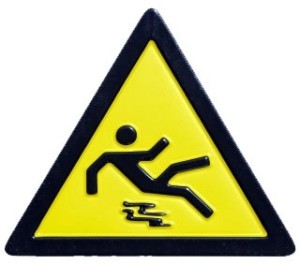 A common public misconception with my profession (a personal injury trial lawyer), is that we’re ambulance chasers looking for an easy buck. Mark Levin calls us “slip and fall” lawyers as if to discredit our legitimacy with issues like the Patient Protection and Affordable Care Act. Listeners to The David Dorer Show know that I am plenty competent to analyze constitutional issues, despite how I make a buck, but that is neither here nor there. Mark Levin is a washed up bureaucrat turned anti-government sensational radio host.
A common public misconception with my profession (a personal injury trial lawyer), is that we’re ambulance chasers looking for an easy buck. Mark Levin calls us “slip and fall” lawyers as if to discredit our legitimacy with issues like the Patient Protection and Affordable Care Act. Listeners to The David Dorer Show know that I am plenty competent to analyze constitutional issues, despite how I make a buck, but that is neither here nor there. Mark Levin is a washed up bureaucrat turned anti-government sensational radio host.
I actually want to talk about slip and fall for a second. Since Robinson vs. Kroger, recovering for a personal injury sustained at a place of business has been incredibly taxing for injured plaintiffs. A plaintiff has to show that the store owner has “superior knowledge,” or, the ability to know about the dangerous condition that is superior to the plaintiff. The idea is that an owner or occupier of land is not the “insurer” of the people that come into their store to do business.
As a result of this, attorneys for stores in slip and fall cases argue they didn’t have employees in the area where the fall happened and that they had procedures to inspect for spills that were followed. This use to be enough to win a case on summary judgment.
The Georgia Court of Appeals said yesterday:
Constructive knowledge may be inferred when there is evidence that the owner lacked a reasonable inspection procedure. In order to prevail at summary judgment based on lack of constructive knowledge, the owner must demonstrate not only that it had a reasonable inspection program in place, but that such program was actually carried out at the time of the incident. In addition, to withstand a motion for summary judgment, the plaintiff need not show how long the hazard had been present unless the owner has demonstrated its inspection procedures – Ramotar v. Kroger Co.
The issue of constructive knowledge is now no longer an issue that a judge can use to deny plaintiffs the right to recover for injuries they sustain on a store owner’s property. Juries have to answer the question: is an absence of employees in the area constructive knowledge? Is it “superior knowledge.”?
This is a good thing. Every person deserves their day in court. It’s a constitutional right. Just ask Mark Levin.